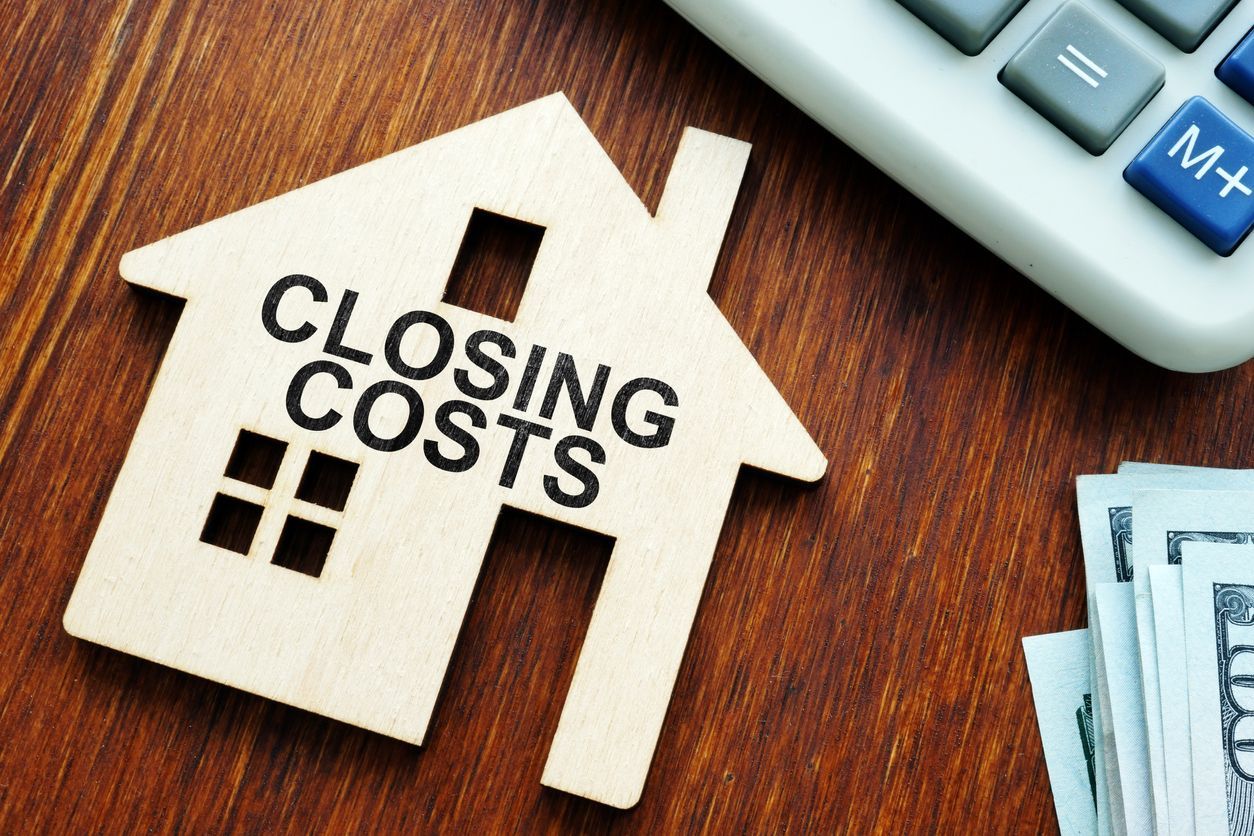By Ralph DiBugnara
•
November 6, 2025
By Julie Gerstein October 22, 2025 Real Estate Is Still a Good Investment: How It Stacks Up Against Gold, Bitcoin After soaring to new highs just as the U.S. government entered its first shutdown in almost seven years, gold prices slid back down by just over 5% on Tuesday to around $4,130. Some experts still look at the precious metal as a solid investment, while others warn this is why investing in assets like real estate is a smarter move. Though high mortgage rates are making it more expensive to buy a home right now, many experts still believe that real estate beats out other investment opportunities. And with President Donald Trump signing an executive order allowing alternative assets such as private equity, cryptocurrencies, and real estate into workplace retirement plans, the market is still a better investment. In fact, according to Gallup, 37% of Americans still agree that real estate is the best long-term investment, with only 23% saying gold and 16% relying on stocks. If all of these options leave your head a bit scrambled about where to put your money, you're not alone. Some areas of investment, like art, require specialized knowledge, while others depend on how much risk you're willing to take. With real estate in particular, many homeowners are sitting on record-high equity, which can be used through a home equity loan or a home equity line of credit (HELOC) to purchase an investment property, according to Hannah Jones, senior economic research analyst at Realtor.com®. "However, investing in real estate is not a slam-dunk in all markets as high home prices and elevated mortgage rates squeeze potential earnings," she points out. "Investors, or homeowners looking to branch out into buying an investment property, should fully understand expected cost and expected income from a property, as well as the time horizon to see a profit." Here's how real estate stacks up against other investments. Buying real estate Pros: Real estate values have grown at a slower pace than the S&P 500 on a year-over-year basis, but according to a Realtor.com analysis, real estate saw an average five-year return of +26% since 1975 as of the end of 2024. That's nothing to sneeze at. Typical homeowners have also accumulated at least $147,000 in housing wealth in the past five years, according to the National Association of Realtors® in its fourth quarter of 2024 report. "Traditional investments like 401(k)s, IRAs, and ETFs are great for passive growth, but real estate brings in a whole different level of wealth-building," says Dan Reedy, a real estate investor and broker. Real estate is also a much more hands-on investment. "With real estate, you can actively influence your returns by making strategic upgrades or managing rental rates," he adds. "Plus, real estate offers deductions—mortgage interest, depreciation—that can make a huge difference come tax season. It's not just about growing wealth; it's about growing wealth you can control." Sara Levy-Lambert, vice president of growth at real estate management company RedAwning, adds that although real estate is not without risks, its "blend of passive income potential, stability, and the chance to build equity over time make it a solid choice for those looking to diversify beyond paper assets." Cons: If you value liquidity and being able to access your funds at a moment's notice, it's probably not the right move for you. Buying and selling homes can take months—if not years—and can require a lot of upfront costs. "The biggest problem I see is that people have record equity in their home right now—more than they've ever had before. But that's just a number on paper," says Ralph DiBugnara, founder of real estate resource site HomeQualified. "You can't really do anything with it unless you're willing to take [money] out of the house, unless you're willing to leverage it." By that, DiBugnara means being able to leverage a home equity loan or home equity line of credit. Investing in real estate directly "gives you full control—you decide on tenants, renovations, and how it's managed. But you also take on the costs and responsibilities that come with ownership," says Jace Graham, CEO of Rising Phoenix Capital. Real estate investment trusts Pros: When you think of real estate investing, you're likely picturing putting a down payment on a home and negotiating the terms of a mortgage. But if you can't afford to build a personal portfolio of investment properties, that shouldn't discourage you from buying into the market. Many do so by participating in real estate investment trusts, or REITs. REITs allow investors to buy shares in a real estate company. Their portfolios typically include a mix of residential and commercial properties. "You don't own the property directly, so you're hands-off, which is easier for most people," Levy-Lambert says. "They're also traded like stocks, making them more liquid. Just buy or sell whenever you want, without the management headaches." The IRS requires REITs to pay out at least 90% of their income as dividends to shareholders, so investors have a steady flow of funds coming in. It's also taxed as regular income. "In a nutshell, direct real estate gives you control and potential tax perks but requires more work and patience, while REITs offer easy, flexible access to real estate returns without the management hassle but are taxed a bit differently," says Levy-Lambert. A REIT also might be a great place to start if you haven't saved up enough for a down payment but want to make a steady return on the market. Cons: REIT dividends are generally taxed as ordinary income—not at the lower capital gains rate. The average annual dividend yield for publicly traded REITs currently hovers around 4%, though this can vary by sector and market conditions. Cryptocurrency Pros: There's big money to be made—or lost—in the cryptocurrency market at the moment. Bitcoin initially traded at $0.00099 in 2009, but today it's over $88,000, and early investors who have held on have made many millions of dollars. The current presidential administration is also very invested (pun intended) in making crypto more accessible. Cons: Of course, investing in cryptocurrency comes with many risks. Aside from the many crypto-related scams, including the spectacular collapse of Sam Bankman-Fried's FTX, you might need nerves of steel to play in this market. "Cryptocurrencies are notoriously volatile, subject to speculation, and witness frequent bubbles and crashes," says Harry Turner, founder of Sovereign Investor. "That's why cryptocurrencies are really only suitable for individuals with a high risk tolerance and an understanding of the underlying technology, which can be complex. Real estate doesn't have this problem." Gold Pros: These days, you can purchase gold stocks or ETFs, or buy the physical stuff—coins and gold bullion. If that's what you're into, you can even buy gold at Costco now. For some, nothing beats the security of owning a chunk of precious metal. Gold is a relatively stable asset. It's less reactive and can be a good hedge against the volatility of the market. In the four years following the 2008 financial crash, the price of gold increased dramatically—in 2011 alone, by 32.8%. Fast-forward to today, and the price of pot gold is on a bit of a roller coaster. After hitting an all time high price of $4,225.10 per ounce in early October, the prices started to plunge by the following week, falling as much as 6.3% soon after, marking the largest intraday drop for the metal since a 6.3% plunge in June 2013, according to Forbes. The strength in gold follows the implementation of many of Trump's tariffs on Aug. 8, including surprise levies on 1 kg and 100-ounce imported gold bars. The import charges on gold bars could disrupt shipments from primary refining hubs, including Switzerland, London, and Hong Kong. Cons: Though you can buy gold at Costco, you can't sell it through the store. In fact, it's fairly difficult to sell gold commercially—and you'll have to do a good bit of research to get a fair price. Let's be real: Physical gold weighs a ton, and it's not the easiest thing to move around. Plus, you’ll want to insure it, which will cost you additional money, and there are higher taxes on physical gold. So if you sell, you’ll have to pay a capital gains tax of up to 28% on any profit. (The typical capital gains on stocks and bonds is 20%.) Investing in other types of tangible assets Pros: Relatively niche markets allow investors to dig into the things they love, be it art, cars, or wine. Cons: There's a high barrier to entry in some of these particular markets—not just financially, but in terms of knowledge. For example, the classic car collectible market is fairly exclusive and, as an investment category, it might not be very practical either because every time you use one of these collectibles in your portfolio, you run the risk of lowering its value. Alternative assets can be exciting and sometimes profitable, but they come with extreme volatility. The wine market, for instance, is affected not just by the collector market but also by the agricultural outlook and weather conditions. These markets don't necessarily move quickly, either. As interest ebbs and flows in different types of asset classes, so do potential moneymaking opportunities. "Look at crypto. Bitcoin, for instance, went from $60,000 to $20,000 in under a year," says Reedy. "The occasional blue-chip wine or NFT might pay off big, but real estate lets you sleep at night while building long-term wealth." No matter what you choose to invest in, you should talk to your financial adviser about what types of investments are right for you. Dina Sartore-Bodo contributed to this report.











